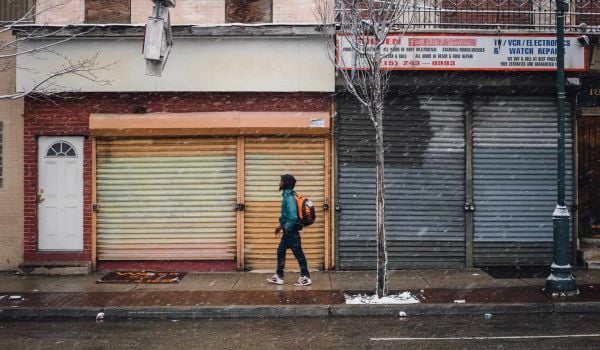Very small businesses already had tough odds prior to the pandemic. In addition to the upfront costs associated with starting a business, there is an invisible web of paperwork, regulations and zoning that can be prohibitive, particularly for those without the capital or the knowledge needed to navigate them. In response to the pandemic, some local governments have tried to ease regulations to make the entire permitting process smoother to navigate and improve mentorship opportunities for those without the requisite connections. These long-term strategies, as well as short-term rent relief programs that could survive in some form after the pandemic, could potentially lead to a more inclusive small business landscape in the years ahead.
Communication is Key
While most states have MWBE-specific business resource centers, those centers have been unable to conduct in-person outreach during the pandemic. Cities have moved online — New York City’s Department of Small Business services offers courses and pro-bono legal assistance in multiple languages, but now offers the services on their websites and through scheduled appointments with specialists.
NYC’s Immigrant Business Connection offers information to people starting new businesses in the city and is accompanied by a website that can be translated, via drop-down menu, into over 100 languages. The project is a collaboration between the New York Public Library and the city’s Department of Small Business Services.
To get communication to business owners on pandemic recovery and other support for small businesses, the city also established a “Small Business Resource Network” in September. They hired 22 small business specialists to work with business owners on an individual basis, and embedded them in the city’s five borough-based Chambers of Commerce. The Partnership For New York City, the non-profit that is helping coordinate the Small Business Resource Network, says specialists speak Spanish, Russian, Greek, Haitian Creole and Tagalog.
New York State also hosts an annual forum for MWBE’s to provide resources and information on certification which went virtual this year in response to the pandemic. The virtual forum included an online bootcamp that provided technical assistance and help with government procurement processes.
Commercial Rent Relief
Commercial real estate was already expensive in many cities prior to the pandemic. But after COVID-19 struck, small businesses were in a similar boat as residential renters – unable to make rent, many small businesses were evicted.
Some cities have been using incentive programs to provide rent relief. The city of Pittsburgh is providing up to $3,000 grants to landlords who agree to temporarily reduce rent for commercial tenants with small, locally owned businesses. The grants subsidize 50 percent of a tenants rent reduction. The money is intended for Pittsburgh landlords whose commercial tenants have no more than fifteen full-time employees, and the rent reductions must last between 3-6 months. The program has had 75 applicants, about 30 of which were eligible and received grants, according to Kryn Sausedo, Assistant Director of Business Solutions at the Urban Redevelopment Authority of Pittsburgh, which disburses the grants.
The state of Oregon went even further and put aside $100 million for commercial rent relief across the state. Commercial tenants who are behind on rent due to the pandemic can apply with landlords, with limits of $100,000 per commercial tenant and $3 million per landlord. Landlords must agree to forgive all outstanding penalties and not to evict the tenant after receiving funds, according to Oregon Live. The funds may not meet the demand, however, and will be disbursed based on a lottery.
Speeding up Permitting
Budding entrepreneurs can be dissuaded from the enormous amount of red tape that goes into starting a small business as well as the time it takes to navigate that tape.
Some cities are trying to find ways to make these processes easier. And sometimes, the fix is pretty simple, if unglamorous: In Oakland, Vice-mayor (and Councilmember at-large) Rebecca Kaplan introduced a resolution calling to hire more workers for the city’s Building and Planning Department, which oversees permits for buildings and opening businesses. The positions would be funded by a 2006 fund set up by the City Council for the same purpose, but which never spent its balance.
In a tweet announcing the legislation, Vice- Mayor Kaplan said, “I’ve been working to diagnose and solve the huge backlog in permits /planning/building and the understaffing. This is impeding business and housing development. Found out admin had frozen a bunch of positions, and I’m bringing action item to fix it.”
Removing Zoning and Permitting Barriers
The Oakland resolution is being billed as a pandemic relief strategy, although other cities took action to streamline requirements before the pandemic. In nearby San Francisco, Mayor London Breed enacted a raft of legislation in 2019 in response to high storefront vacancies. The laws remove zoning restrictions that made it difficult for businesses to offer multiple types of services — for instance, one coffee shop and entertainment venue that endorsed the legislation could now apply for a liquor license. The legislation will also pave the way for assessments of areas with storefront vacancies to determine the cause and develop solutions.
Los Angeles enacted a similar streamlining last year, called the “Restaurant Beverage Program,” targeted specifically at making liquor licenses cheaper for restaurants to obtain and easier to apply for. (The program does not apply to nightclubs or bars.) The expensive licenses – which previously cost about $13,000, according to the city’s press release, will now cost $4,000. The application process will also be shortened from months to weeks. Prior to the change, the process for obtaining liquor licenses was so complicated that restaurants had to hire specialist lawyers, according to Eater. At the beginning of the pandemic, California’s alcohol board also permitted to-go alcohol to be sold by restaurants, as did other states across the country.
This article is part of Elements of an Equitable Recovery, a series on solutions helping small, especially woman- and minority-owned, businesses survive and thrive. This series is generously underwritten by LISC.

Roshan Abraham is Next City's housing correspondent and a former Equitable Cities fellow. He is based in Queens. Follow him on Twitter at @roshantone.
















